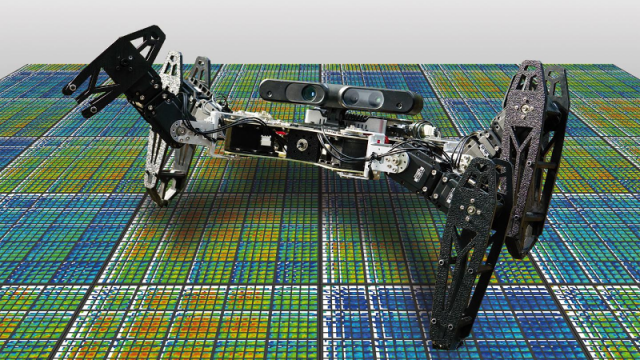How robots can adapt to damages

Researchers from France and the US have developed a robot that can adapt to being damaged.
Scientists at the Pierre and Marie Curie University and the University of Wyoming have developed software that enables machines to recognize an injury and react to it in the best way possible in order to continue with the task at hand.
Previously, when robots became damaged they attempted to continue operating in exactly the same way as they did prior to the trauma. This often led to poor completion of the task or inflicting further damage.
The Intelligent Trial and Error algorithm simulates a number of "intuitions" before the robot begins its work, which tell it what behaviors to carry out and assigns each one a value. This algorithm enables the robot to find the right behavior to compensate for specific types of damage.
"Once damaged, the robot becomes like a scientist", explains Antoine Cully, a PHD student at Pierre and Marie Curie University. "It has prior expectations about different behaviors that might work, and begins testing them. However, these predictions come from the simulated, undamaged robot. It has to find out which of them work, not only in reality, but given the damage".
Although developing robots that can carry out the wide variety of behaviors exhibited by living things is difficult, the algorithm is inspired by the animal kingdom, specifically the ability for animals to move when injured.
Researchers have already witnessed positive results, whereby robots that have damaged their hind legs, quickly switch to using their front ones. Eventually, robotics may advance enough that robots will actually be able to repair themselves, meaning much less time and resources spent on maintenance.
In the meantime, it is hoped that the ability for robots to adapt to damage could prove useful for machines sent into hazardous rescue operations.
Published under license from ITProPortal.com, a Net Communities Ltd Publication. All rights reserved.